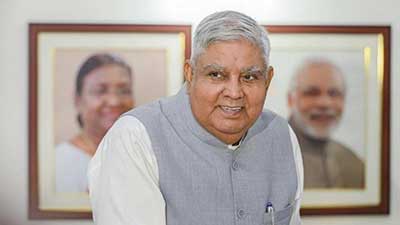Date: 23/02/2023
Relevance: GS-2: Parliament and State Legislatures—Structure, Functioning, Conduct of Business, Powers & Privileges and Issues Arising out of these.
Key Phrases: Privileges Committee, disciplinary action, the role of the Chair in regulating parliamentary proceedings, Parliamentary Privileges, Promoting constructive discussions and debates.
Why in News?
- The recent developments in the Indian parliament have raised concerns about the balance between discipline and accountability.
Issues surrounding recent development:
- The Directive to the Privileges Committee:
- Rajya Sabha Chairman directed the Privileges Committee to investigate the “disorderly conduct” of 12 Opposition Members of Parliament during the first leg of the Budget session.
- The directive raises questions about the role of parliamentary committees in ensuring discipline and accountability.
- Recording of Proceedings:
- The suspension of Congress Member of Parliament for allegedly recording the proceedings on her mobile phone has led to criticism of due procedure.
- The Congress has argued that proper notice was not given to her to explain her position.
- This raises concerns about the fairness and transparency of disciplinary action in parliament.
- Interruptions and Expunged Speeches:
- During the Motion of Thanks to the President’s Address, Rajya Sabha Chairman repeatedly interrupted the Congress president’s speech, leading to six portions of the speech being expunged from the records.
- This has led to concerns about the ability of the Opposition to voice their opinions in parliament and the role of the Chair in regulating parliamentary proceedings.
Parliamentary Privileges
- Parliamentary privilege refers to a set of special rights and immunities that are granted to Members of Parliament, in order to enable them to perform their duties effectively without fear of persecution or prosecution.
- These privileges are enshrined in the Indian Constitution under Articles 105 and 194 for Members of Parliament and Members of Legislative Assemblies, respectively.
- Under these articles, Members of Parliament and Legislative Assemblies enjoy certain privileges and immunities, including the freedom of speech and expression in the Houses, the right to be free from arrest or detention during the session of the Houses, and the right to publish proceedings of the House without prior permission.
- These privileges are granted to ensure that Members can carry out their functions without fear or favour and to protect the dignity and integrity of the Houses.
- However, these privileges are not absolute, and they must be exercised in accordance with the rules and regulations of the Houses.
Committee of Privileges
- Each House of Parliament and its Committees collectively and members of each House individually enjoy certain rights, privileges, and immunities without which they cannot perform their functions efficiently and effectively.
- This Committee consists of 15 members (10 members in the case of Rajya Sabha) nominated by the Speaker (Chairman in the case of Rajya Sabha).
- In the Lok Sabha, the Speaker nominates the head of the committee of privileges.
- In the Rajya Sabha, the deputy chairperson heads the committee of privileges.
- Its function is to examine every question involving a breach of privilege of the House or the members of any Committee thereof referred to it by the House or by the Speaker/Chairman.
- It determines with reference to the facts of each case whether a breach of privilege is involved and makes suitable recommendations in its report.
What needs to be done?
- Uphold Parliamentary norms and principles:
- The government should respect the parliamentary norms and principles, which ensure healthy and constructive discussions and debates in the House.
- The Chair and other officials responsible for maintaining parliamentary discipline should discharge their duties impartially and without bias.
- Ensure transparency and accountability:
- The government should be transparent and accountable to the Parliament, which represents the people of the country.
- It should address the questions raised by the Opposition sincerely and transparently, without resorting to obfuscation or evasion.
- The authenticity of any assumption or statement made by a Member of Parliament should be clarified by the government, which is its duty.
- Avoid penalizing the Opposition for seeking accountability:
- The Opposition has the responsibility to ask questions of the government, and it should not be penalized for seeking accountability.
- The government should refrain from using parliamentary rules and procedures to silence the Opposition's voice or avoid answering difficult questions.
- Follow due process:
- The Chair and other officials responsible for maintaining parliamentary discipline should follow due process while taking any action against the Members of Parliament.
- The Members of Parliament should be served proper notice and given an opportunity to explain their position before any punitive action is taken against them.
- Promote constructive discussions and debates:
- The Chair and other officials responsible for maintaining parliamentary discipline should promote constructive discussions and debates in the House.
- They should ensure that all Members of Parliament, regardless of their political affiliations, are able to express their views freely and without fear of retribution.
- The government should be open to constructive criticism and suggestions from the Opposition, which can help improve the quality of governance and policymaking.
Source: The Hindu
Mains Question:
Q. To what extent does the need for parliamentary discipline conflict with the necessity of open and robust discussion in a democracy? Discuss.






















